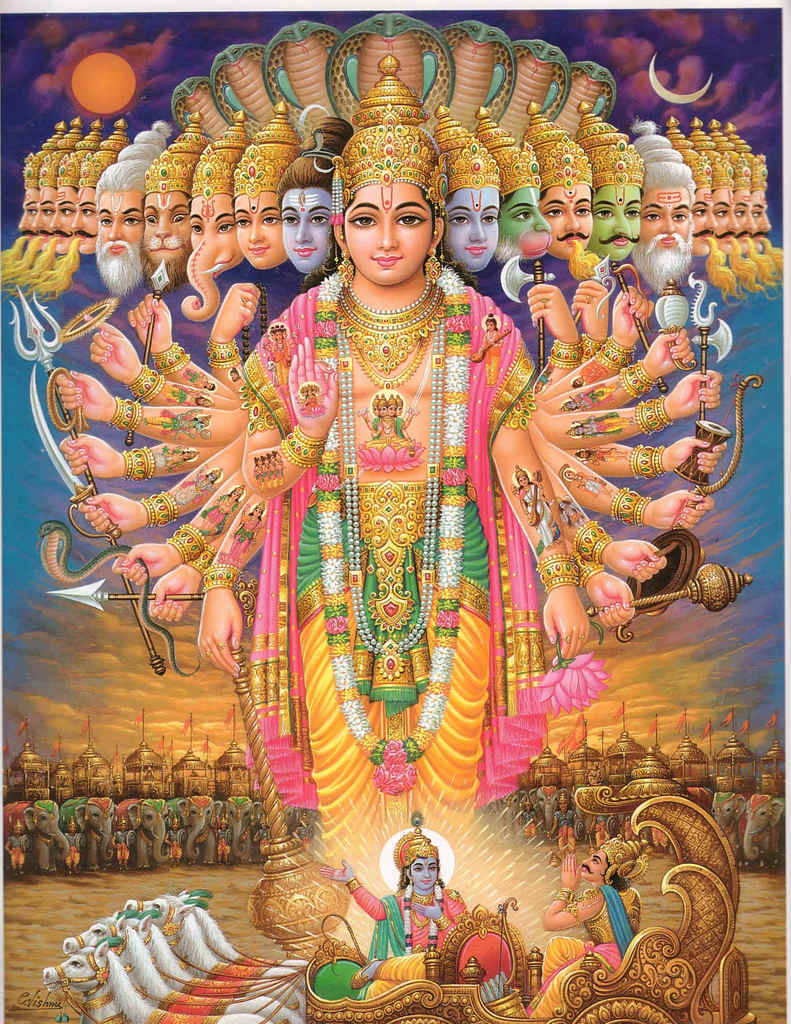In the mosaic of the world’s spiritual traditions, the Baha’i Faith stands as a luminous testament to the unity of divine revelation. A critical inquiry within this faith revolves around the nature of God: Is there one supreme being, or are there multiple deities? This question becomes particularly intriguing when viewed through the lens of Hinduism, a religion known for its pantheon of gods. The Baha’i perspective on this matter offers a synthesis that seeks both coherence and inclusivity.
The Baha’i teachings posit a monotheistic framework that acknowledges the myriad manifestations of the divine across different cultures and epochs. At the heart of Baha’i theology lies the notion that all religions stem from the same divine source, each providing unique insights into the reality of God. Just as various rivers converge into a singular ocean, so too do the different expressions of God in world religions ultimately reflect one majestic reality.
This metaphor of convergence echoes the relationship between the Baha’i Faith and Hinduism. While Hinduism celebrates an intricate tapestry of deities—Brahma, Vishnu, Shiva, and myriad others—the Baha’i perspective does not dismiss these manifestations but rather interprets them through the lens of unity. The plethora of Hindu gods can be seen as diverse expressions of the one true God, each representing different attributes and aspects of the divine nature. Vishnu, for instance, symbolizes preservation and protection, while Shiva embodies transformation and regeneration.
In this context, the diverse avatars of Hindu deities reveal a striking parallel to the Baha’i understanding of the manifestations of God. These are figures such as Jesus, Muhammad, and Baha’u’llah, who embody the divine will and offer guidance to humanity at different phases of its evolution. Just as Hinduism reveres the divine presence in multiple forms, the Baha’i Faith also champions the essential oneness of all religious teachings, advocating for a harmonious coexistence of all spiritual paths.
Yet, the Baha’i Faith does not merely accept the multiplicity of deities as equivalent to its own monotheism. Rather, it interrogates the implications of polytheistic doctrines within a broader theological framework. The Baha’i scriptures encourage adherents to recognize the underlying unity among the differing conceptions of God across cultures. This transcendent viewpoint not only fosters interfaith dialogue but also promotes mutual respect among diverse religious traditions.
The recognition of Hinduism’s rich theological landscape positions the Baha’i Faith as a bridge between different spiritual realms. It invites practitioners to reflect on the deeper essence of divine love and guidance that transcends cultural and doctrinal boundaries. The Baha’i writings emphasize that the multiplicity of divine manifestations serves a singular purpose: to nurture the spiritual growth of humanity and lead it towards greater unity.
Moreover, the Baha’i interpretation of Hinduism presents a compelling narrative regarding the nature of truth itself. In the Baha’i lexicon, truth is not a mere abstraction but a dynamic, evolving reality that accommodates diverse perspectives. This perspective parallels the Hindu concept of Brahman, the ultimate reality that is both the source and the essence of all existence. Just as the rivers of human experience flow towards the ocean of unity, so too do the myriad interpretations of truth converge in the embrace of a singular divine fabric.
However, the challenge arises from the extreme differentiation often found within religious traditions, including Hinduism, where sects may venerate their specific deities to the exclusion of others. The Baha’i Faith calls for a profound transformation in this regard—one that encourages believers to embrace a more expansive understanding of worship. By appreciating the diverse representations of divinity, adherents of the Baha’i Faith can cultivate an inclusive mindset that champions the universality of spiritual truths, rather than dividing oneself along doctrinal lines.
Furthermore, the Baha’i perspective on Hinduism encapsulates a transformative power – one that is not only theological but also social and cultural. It advocates for fostering a sense of global citizenship that transcends parochial religious affiliations. This vision encompasses the belief that the essence of all religions points toward the same ideal: the advancement of humanity as one interconnected whole. The emphasis on unity in diversity is particularly resonant in a world that often grapples with division and discord.
In conclusion, the Baha’i teachings present an alluring, profound answer to the timeless question of whether there is one God or many. Through the lens of Hinduism, the Baha’i Faith illustrates that the multiplicity of divine manifestions can coexist harmoniously within a framework that acknowledges the oneness of God. It transforms our understanding from mere differentiation to a holistic appreciation of diverse spiritual expressions. Ultimately, this perspective not only enriches our theological inquiries but also enhances our collective journey toward greater unity and understanding among the global tapestry of faiths.
